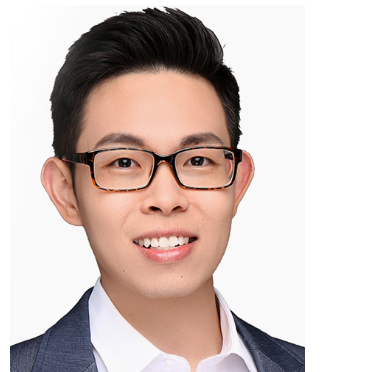Education
- Bachelor’s in Engineering (Biomedical Engineering) First Class Honours, NUS
- PhD, University of California, Los Angeles
- Postdoctoral Scholar, Stanford University
- Brunel Research Fellow, Imperial College London
Research Interests
- Magnetic biomaterials
- Mechanobiology Medicine
- Immuno-engineering
Selected Awards & Honours
- Hisako Terasaki Young Innovator Award, Terasaki Institute of Biomedical Innovation
-
World Top 2% Scientist, Stanford University
-
NCID Short Term Fellowship ($8K SGD), National Centre for Infectious Diseases
-
Christopher Hewitt Outstanding Young Investigator Award, Engineering International Conference ‘Advancing Manufacture of Cell and Gene Therapies VII’
-
Victor Rabinowitch Memorial Award for Young Leaders in International Scientific Cooperation, CRDF Global
-
Outstanding Young Alumni Award, NUS
- 30 and Under Young Singaporeans to Watch, The Straits Times
- Early-Career Faculty Award, Interstellar Initiative, 2020
- Alessandro Chiabrera Award, Bioelectromagnetics Society, 2020
- Young Scientist, World Economic Forum, 2020
- NUS Development Grant, NUS, 2020
- Yamaguchi Medal, Asian Pacific Association for Biomechanics, 2019
- The III Siena Think Tank Young Investigator Fellowship, NIBIT Foundation, 2019
- Singapore Commonwealth Fellowship in Innovation, RSC Singapore, 2019
- Brunel Fellow, 1851 Royal Commission, 2019
- 30 Under 30, Forbes (4% acceptance rate), 2019
- Travel Award, Society for Immunotherapy of Cancer (1 of 5 awardees), 2019
- 8th Distinguished Young Scholars Seminar, University of Washington, 2018
- Harry M Showman Prize (Commencement Award), UCLA, 2018
- Travel Fellowship, 68th Lindau Nobel Laureates Meeting, 2018
- MRS Bulletin Postdoc Publication Prize, Materials Research Society (*Out of >120 applicants), 2017
- Springer These Prize, Springer, 2017
- SciFinder Future Leaders Program, American Chemical Society (out of >400 applicants), 2017
- Toshihiko Tokizane Memorial Award for Excellent Graduate Study in Neuroscience, Toshihiko Tokizane Brain Research Promotion Fund, 2017
- Australian Endeavour Research Fellowship, Australia Department of Education, 2017
Selected Journal Publications
-
1. Yufeng, S., Xin Yong, T., Xian, L., Zhicheng, L., Ling, L., Xinhong, S., Jonhson, W., Jun, D., Chwee Teck, L. & Andy Tay*. Dynamic magneto-softening of 3D hydrogel reverses malignant transformation of cancer cells and enhances drug efficacy. ACS Nano (2023).2. Yufeng, S., Ling, L., Qimin, L., Zhicheng, L., Khang Leng, L., Hua, L. Xianlei, L., Zhangyun, D. K., Yuwen, W., Tong Ming, L., Zheng, Y., Chwee Teck, L., Christine, C. & Andy Tay*. Mechano-responsive hydrogel for direct stem cell manufacturing to therapy. Bioactive Materials (2023).3. Zhicheng, L., Jinming, Y., Ying Jie, Q., Bingyu, B., Xianlei, L., Yufeng, S., Ba Myint, Chenjie, X. & Andy Tay*. Design principles of microneedles for drug delivery and sampling applications (link). Materials Today (2022).4. Andy Tay* & Melosh, N.* Mechanical stimulation after centrifuge-free nano-electroporative transfection is efficient and maintains long-term T cell functionalities. Small (2021). #Selected for journal cover #Selected as part of Wiley Rising Star initiativ5. Kumar, KR, A., Yufeng, S., Brian, C., Krishaa, L. & Andy Tay*. Materials for improving immune cell transfection. Advanced Materials (2021). *Corresponding author
Selected Science Communication Publications
- How to create a lab-group logo that stands out from the crowd. Nature
- How building a phage directory can mean life or death for patients. Nature
- A family affair: How scientists’ parents careers paths can influence their children’s choices. Nature
- Why science needs a protein emoji? Nature
- How to wrap up research projects gracefully? Nature
- Hiring and being hired: faculty members share their stories. Nature
- Creating a science legacy. Nature
LinkedIn: click here


